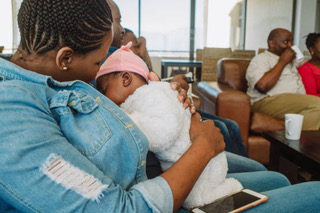The World Health Organization (WHO) expresses deep support for the breastfeeding of newborns, citing the health benefits for both mothers and babies. Breastmilk contains essential nutrients and antibodies that can combat and protect infants from common and severe illnesses, all the while reducing the risk of ovarian and breast cancers among breastfeeding mothers. A recent concern uncovered by A. Vasquez-Vasquez et. al is that mothers are experiencing greater distress during the Covid-19 Pandemic.[1] Due to lockdowns and measures that permit medical visits on an emergency basis only, the process and duration of breastfeeding has become more difficult. Vasquez-Vasquez et. al are recommending better infant feeding support. Felix Ogbo et. al calls upon partners to increase their support and presence for mothers who are breastfeeding.[2] In their study, Ogbo et. al conclude that partners heavily influence a mother’s decision to begin and continue breastfeeding for the recommended period. Additionally, the authors’ study found that a partner’s sensitivity to needs and potential difficulties are major factors in a mother’s continuation of breastfeeding. The possibility of further and more severe lockdowns in the impending second wave of Covid-19 makes the establishment of resources for those who may experience difficulties breastfeeding all the more urgent.
WHO has cited and announced their support for initiatives that are geared toward supporting mothers’ efforts for successful breastfeeding. Campaigns such as, Global Breastfeeding Collective, Baby-friendly Hospitals Initiative, and NetCode could create the necessary resources breastfeeding mothers need during these trying times.
